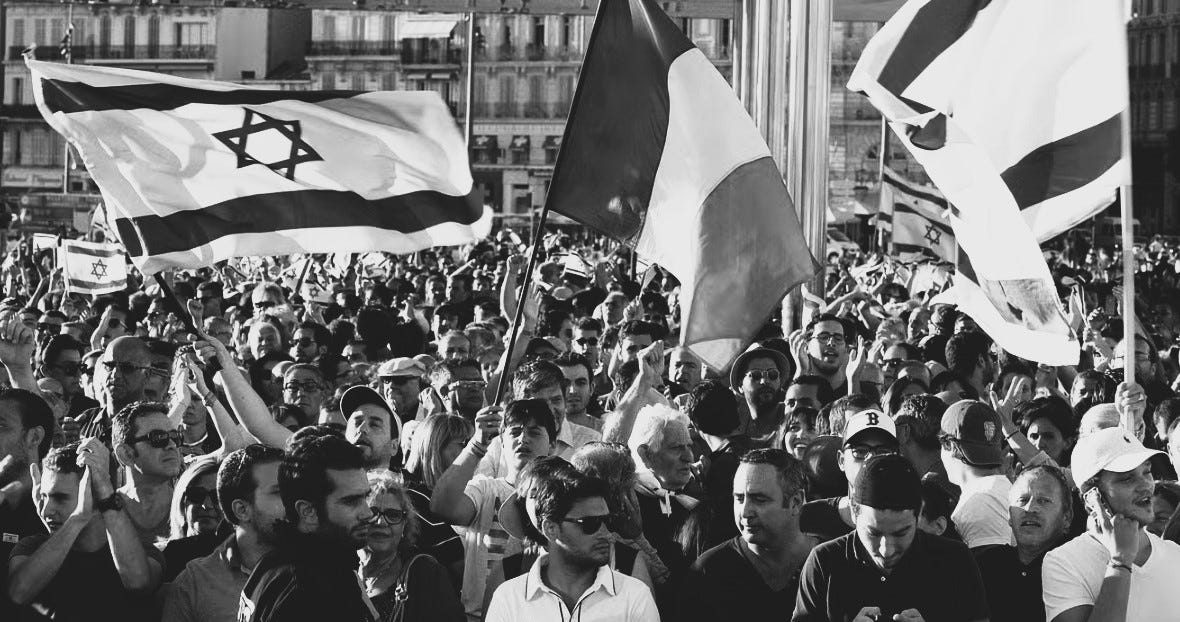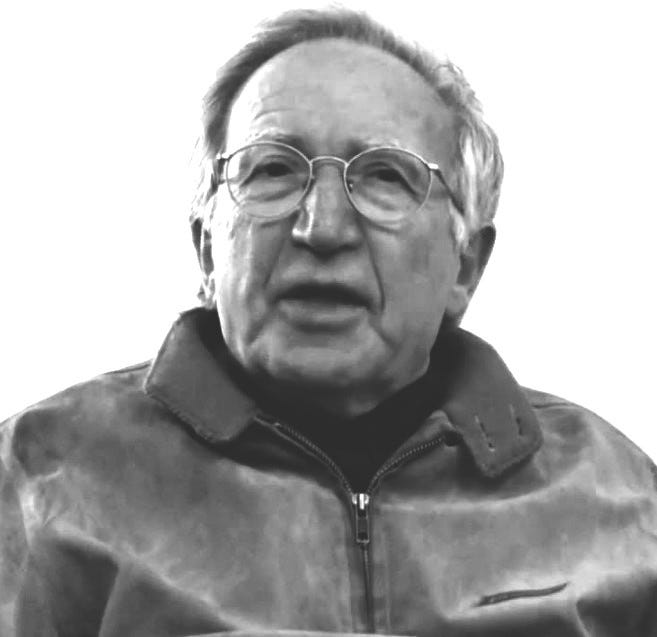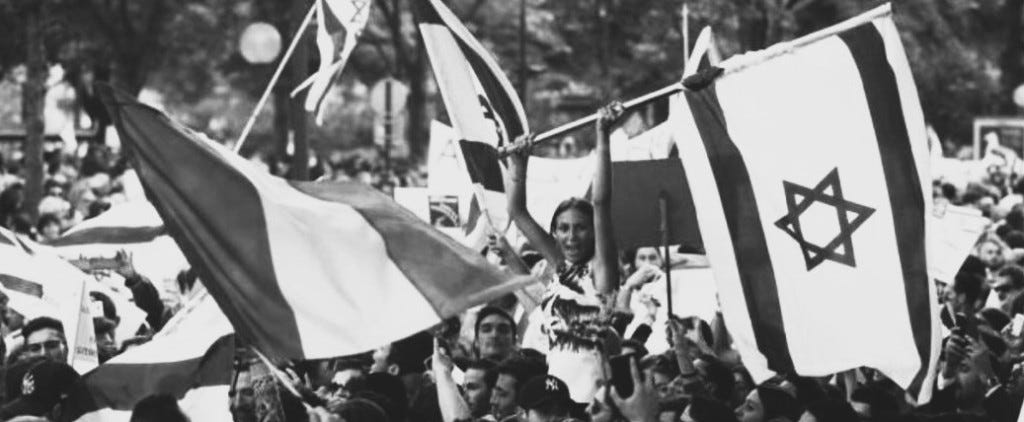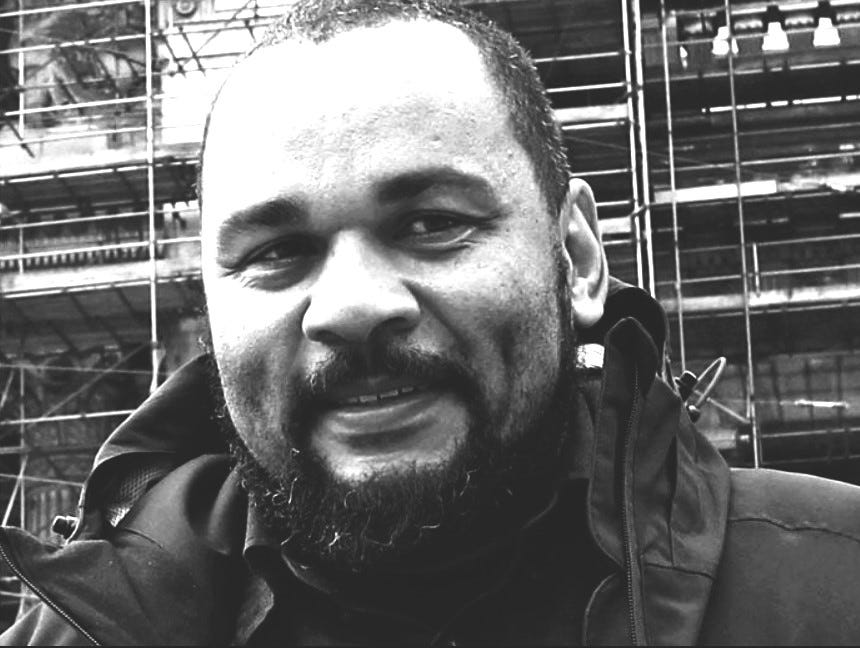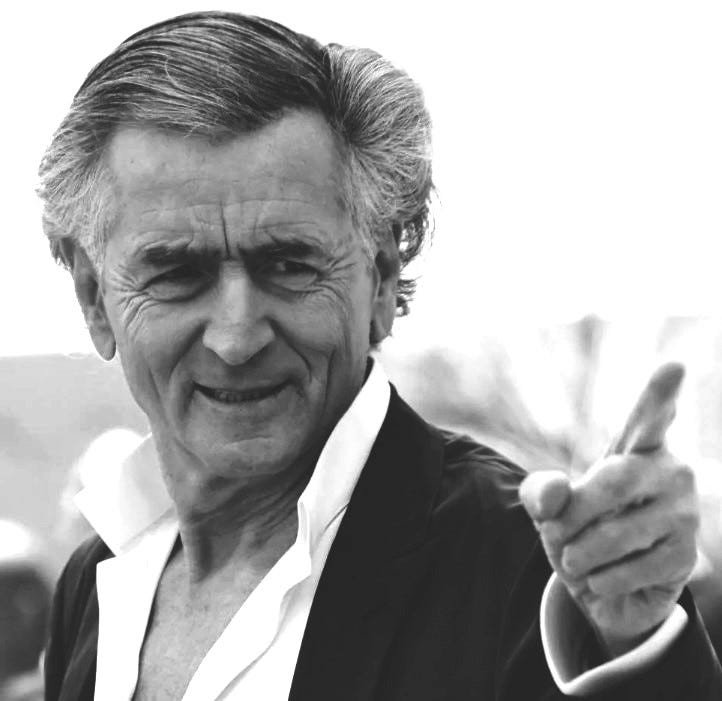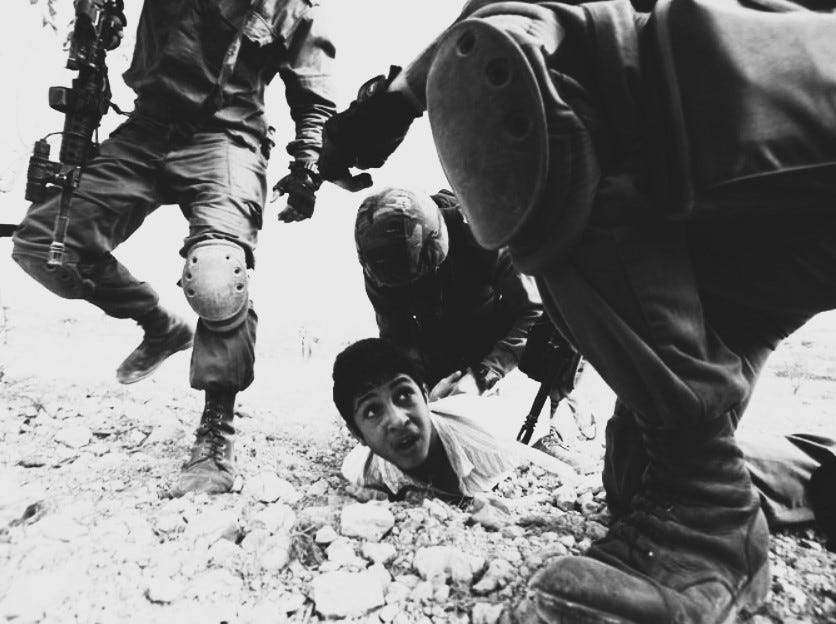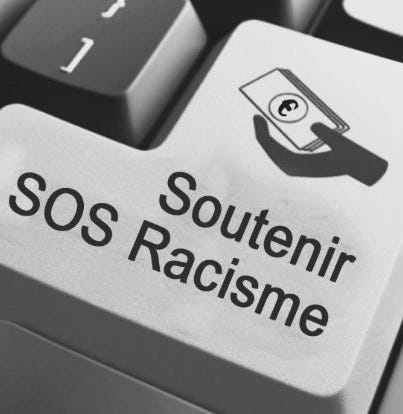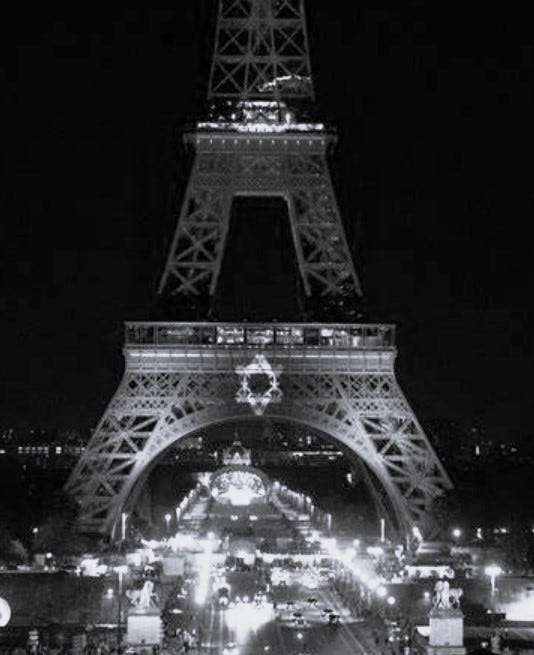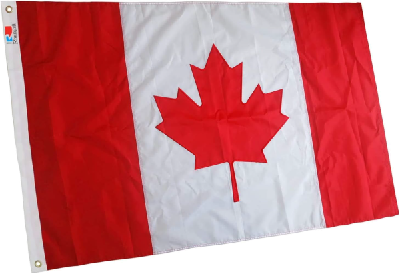Something is smelling decidedly ‘off’ in today’s world, with nauseating levels of corruption, mass murder, lies, hypocrisy and repression. These three essays are based on three books I happen to have recently read, each of which provides fascinating but necessarily limited insights into the reality of contemporary society. Placed alongside each other, however, they can help us to identify the source of the odour.
“The French government has been totally captured by Israel. The president behaves like a Zionist agent. The mass media are controlled… I am astonished by the power of the Jewish lobby. It practically dictates the Middle East policies of France and of Europe”. [1]
“Here are people who control most of the mainstream media, who have at their disposal intermediaries in the highest spheres of the state, not to speak of considerable financial clout, and they cannot tolerate the existence of a little rebel group… These people have decided to attack all forms of pro-Palestinian expression. They are everywhere, they are powerful and above all are diabolically efficient. They must certainly be working with intelligence services”. [2]
The two statements above are fictional. Or rather, they are fictional in that they have been put into the mouths of fictional characters in a work presented as a fiction.
However, author Jacob Cohen clearly does not want his readers to imagine that the contents of Le Printemps des Sayanim (‘The Sayanim Spring’) bear no relation at all to real life.
He chooses to describe his book as an “account” (récit) rather than a novel and his double-edged disclaimer declares: “Despite the troubling proximity to reality of the related facts, all resemblance to existing persons would only be the product of a coincidence”. [3]
One such coincidence concerns the central fictional character Youssef El Kouhen, the history teacher of Moroccan background who becomes involved in Freemasonry in France and whose support for Palestine provokes reprisals from the Zionist sayanim who play a leading role in the organisation.
No connection here, obviously, to Moroccan-born Jacob Cohen (pictured), with a degree from Science-Po in Paris, author of a book exposing the activities of those same networks.
Cohen’s “fiction” begins with a page of non-fictional quotes describing the existence and activities of the sayanim, a volunteer force of millions of Jewish Zionists across the world who are deployed by Mossad to defend and advance Israel’s interests.
Here former Mossad agent Victor Ostrovsky states that this is the Israel intelligence service’s key asset – whereas a branch of Russian intelligence in any given country might need a staff of at least 100 people, Mossad can function with six or seven, the rest of their personnel being from civilian sayanim. [4]
Cohen has his fictional alter ego muse over the psychology of these fanatic Zionists, for whom Israel is the most wonderful country in the world.
“El Kouhen wondered what kept them in their legal homeland [France]. Having the keys to paradise, and staying outside, was not the least of the paradoxes of the ‘chosen people’”. [5]
He describes how on the one hand the sayanim feel an exaggerated pride and confidence in their role, with one of them seeing himself as belonging to “an army of the shadows, with tentacle-like branches capable of reaching any target anywhere in the world. With formidable efficiency”. [6]
But on the other hand there is a constant sense of being in existential danger which maintains a certain desperate urgency in the sayanim mind.
He has one character declare: “You know, Israel gives this impression of being an indestructible force. Which is good, because we are strong. But the threat is permanent. Our enemies are increasingly determined. They will seize any opportunity to hurt us, to finish us off. The war will not only be won on the military front. Our only chance of survival resides in our unity, the unity of the entire Jewish people. Without that, it’s the beginning of the end… We are at war. It’s us or them”. [7]
El Kouhen/Cohen expresses a certain scepticism regarding his co-religionists’ depiction of themselves as perpetual victims.
“They had suffered a lot. But all the same! The scales were truly tilted in their favour. Jews now occupied a prime place. Sympathies at the highest level of the state. The top dogs of France standing to attention at the annual dinner held by CRIF [Conseil Représentatif des Institutions Juives de France]. To the point of developing a feeling of impunity, tinged with arrogance…” [8]
Zionist meetings, in the book, receive VIP treatment from certain politicians in Paris, with the town hall of the 16th arrondissement providing, for free, not only a meeting room but also a lavish buffet.
“An unconditional supporter of Israel, and of the Jewish organisations which represented it, the mayor pulled out all the stops”. [9]
And Paris St-Germain’s Parc des Princes football stadium, in the same arrondissement, is made available by the fictional owner for a Zionist-organised event.
He declares at a B’nai B’rith meeting: “The sandwiches and the drinks will be on the club. We will also be laying on the TV coverage. The full works. Long live the friendship between France and Israel!” [10]
The same event also attracts a grant of 60,000 euros from the EU and financial backing from TV channel ARTE. [11]
The principal weapon deployed by the agents of Zionism operating both in French Freemasonry (Grand Orient) and in the pseudo-masonic Jewish B’nai B’rith is to “reduce critics of Israel to silence by likening them to the worst anti-semites”. [12]
“A terrible sword of Damocles was hanging over the head of those who still believed in the equality of states under international law.
“The supreme accusation, the ultimate insult. In the end, through media hype, they got it accepted as self-evident. All ‘exaggerated’ criticism of Israel amounted to anti-semitism”. [13]
One of the volunteer sayanim, a doctor, is sent to an international medical conference at which a prominent Scottish cardiologist is known to be planning a resolution in support of Palestinians, condemning Israeli war crimes.
The Zionist agent gives a speech evoking the holocaust, the rise of anti-semitism and the existential threat to Israel which leads to the resolution being narrowly defeated. [14]
Cohen’s 2010 fictional account also refers to a very real episode in recent French political life, namely the sayanim campaign against Dieudonné M’Bala M’Bala (pictured), a well-known comedian who started to poke fun at Israel and Zionists.
He writes that the Zionists, very present in show business, set out to discredit Dieudonné by all possible means.
“Accused of ‘anti-semitism’, he was blacklisted and boycotted by the media. Schemes were devised to get his touring shows cancelled. A pre-planned professional death. The message to other artists could not have been clearer. Forbidden zone”. [15]
Cohen evidently had some fun inventing names for his fictional characters – I know enough German to have laughed out loud at “Claude Arschlokhovitch”, for instance. [16]
A key fictional character in the book is a well-known public figure called MST, which in French stands for “maladie sexuellement transmissible” (sexually transmitted disease, STD).
I can only think of one real-life public figure in France who is known by three initials and that is Bernard-Henri Levi, aka BHL, (pictured) but any superficial resemblance is no doubt another of Cohen’s mere coincidences.
MST is depicted as being the most important Zionist agent in France, “worth more than a hundred sayanim“. [17]
An Israeli diplomat enthuses: “This man has incredible networks in the most influential circles in Europe and America. He can call Sarkozy [French President, 2007-2012] whenever he wants – or the king of Morocco, or the president of the European Commission”. [18]
“MST has a special relationship with the Mossad. It’s the Mossad who took care of his protection in Pakistan, when he carried out his inquiry into the murder of the American journalist. Otherwise he wouldn’t have gone. It’s too dangerous. No other secret service would have been capable of protecting him”. [19]
This telegenic Zionist agent, known for his “open-neck white shirts, dandy ways and abtruse intellectualism”, [20] leaps into action every time Israeli interests need defending.
“A sociologist previously above suspicion had dared to draw a parallel between the Israeli occupation and other historical occupations. MST immediately launched a petition which gathered the usual support.
“The major newspapers opened their columns to him. He was invited on to TV chat shows. Canal+ invited him on five times. You could almost imagine him as an intrepid and irreproachable knight, in immaculate white livery, pursuing evil-doing enemies”. [21]
MST argues that to compare the Israeli occupation with other occupations was “to delegitimise the existence of Israel and thus pave the way to a new Holocaust. It was the expression of a historical and visceral anti-semitism, which didn’t dare speak its name, the same anti-semitism which had wrought devastation in Europe.
“These new anti-semites didn’t know, or pretended not to know, that the Jewish army was the most moral in the world”. [22]
The secret of MST’s success in sounding convincing is that he is known for his public criticism of Israel.
Revelation of his true role is a mind-blowing experience for Gilles, a relatively recent Zionist agent, who had previously assumed that MST was not totally on their side.
“What a strange world! He had already benefited from some confidential information – those tasty but unimportant little secrets which announce your arrival in the circle of the initiated.
“But the revelation about MST was of another nature. For the first time, he grasped the complexity of the hidden connections and of the illusions within which ordinary mortals live”. [23]
One of MST’s key catchphrases is his call for “peace” in the Middle East and this term is used a lot by the sayanim in the book.
To this PR end, they arrange an Israel-Palestine football match in Paris – the event I mentioned earlier.
One of them explains: “We have to give the impression that things are moving and that peace can be achieved. And that, because we are on the right road, all forms of resistance can only delay the process”. [24]
To help promote this narrative, the sayanim are closely involved with SOS Racisme (a real-life organisation) whose black or Arab “leaders” are little more than a front for “the Jewish Community”. [25]
Cohen’s Muslim characters condemn SOS Racisme as “sell-outs”, “darlings of the system”, involving “the right of the Socialist Party, Jewish and Zionist organisations and even pro-Americans”. [26]
You could hardly think otherwise “when you know who it was that created them!” [27]
This “anti-racist” body is thus just a Zionist means of capturing the moral high ground, of deflecting criticism of Israeli imperialism [28] with empty talk of “peace” and warnings of a rise in anti-semitism.
It is part of what Cohen describes as “the hidden side of things, the possibilities for manipulation, the telephone calls to the media and the arranged interviews, the invisible web of imposed truths”. [29]
[1] Jacob Cohen, Le Printemps des sayanim: Récit (Paris: L’Harmattan, 2010), p. 65. The translations are my own.
[2] Cohen, p. 165, p. 167.
[3] Cohen, p. 2.
[4] Cohen, p. 5.
[5] Cohen, p. 16.
[6] Cohen, p. 31.
[7] Cohen, p. 47.
[8] Cohen, p. 17.
[9] Cohen, pp. 43-44.
[10] Cohen, p. 55.
[11] Cohen, pp. 72-73.
[12] Cohen, p. 17.
[13] Cohen, p. 66.
[14] Cohen, p. 51.
[15] Cohen, p. 78.
[16] Cohen, p. 25. Arschloch means ‘arsehole’.
[17] Cohen, p. 26.
[18] Cohen, p. 26.
[19] Cohen, p. 27.
[20] Ibid.
[21] Cohen, p. 38.
[22] Ibid.
[23] Cohen, p. 27.
[24] Cohen, p. 73.
[25] Cohen, p. 77.
[26] Cohen, pp. 63-64.
[27] Cohen, p. 64.
[28] Cohen, p. 66.
[29] Cohen, p. 74.
Source: https://paulcudenec.substack.com/p/the-stench-of-the-system-sayanim
Article courtesy of Paul Cudenac. https://paulcudenec.substack.com/
